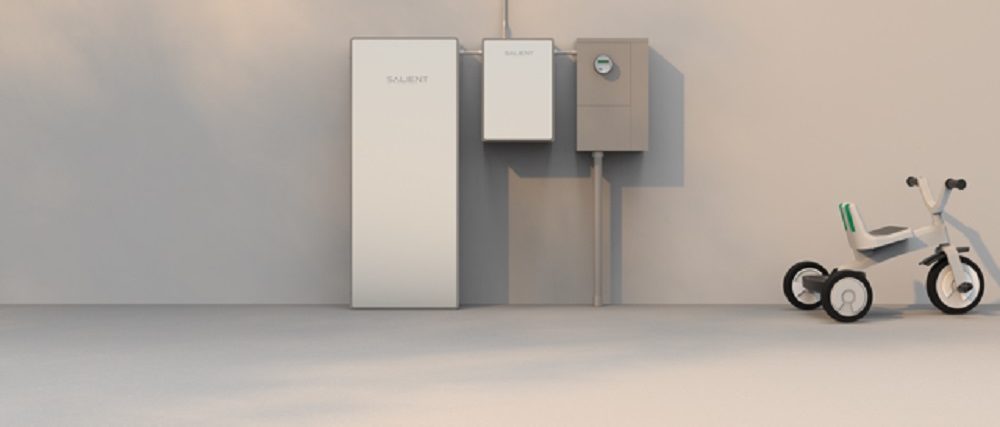From pv magazine USA
Lithium-ion batteries dominate the market for electric vehicles and home energy storage due to lower cost, higher performance, and lower weight compared some alternatives, but the main challenges are safety and sourcing of materials. The safety risk of lithium ion is thermal instability, a condition that can lead to a thermal runaway.
Over the past several years lithium-ion batteries have been known to explode in laptops, cell phones, and to cause fires in large energy-storage facilities. Sourcing of the battery materials, which include lithium, cobalt, nickel, and graphite, is also a challenge as the materials often come from conflict-prone areas like the Congo. These challenges have led some manufacturers to seek alternatives. pv magazine USA spoke with Ryan Brown, CEO and co-founder of Salient Energy, a manufacturer of zinc-ion batteries, and he explained that Salient’s mission is to develop a battery that mimics the performance of lithium-ion while using abundant materials that come from conflict-free areas, and that do not pose a safety risk.

Brown acknowledged that lithium-ion is the best at energy for the weight and that manufacturers have done well to reduce cost, but safety remains an issue. He said, for example, recent fires in Tesla vehicles are caused by thermal runaway in lithium-ion batteries. “When used in home energy systems, safety is also a top priority,” Brown said.
Zinc-ion batteries are a non-flammable option, due to their water-based chemistry, Brown noted. He said that the zinc-ion energy storage systems have the same power, performance, and footprint as lithium-ion systems, “so they are a true alternative to lithium-ion.”
One advantage to zinc-based batteries is that they can be manufactured on the same lines as lithium-ion, which keeps manufacturing costs low. As far as safety goes, “safety is the killer advantage,” said Brown. “What we’ve done is we’ve made a zinc battery that works the same way lithium ion works. We have zinc reacting on both sides, so we don’t have to store the reactant in electrolyte.”
Target market
The main application market that Salient is targeting is stationary energy storage. “Residential yes, but ultimately we want to be in the shipping containers.” With the main advantage being safety, Brown sees the zinc-ion battery as a viable alternative for batteries that need to be placed indoors, such as in apartment buildings. “A city is not place to put energy storage outdoors, and with California mandating that apartments must have energy storage, zinc-ion is a safe solution.”
To demonstrate the safety of zinc-ion batteries as a residential energy storage solution, Salient Energy is partnering with Horton World Solutions (HWS) a sustainable homebuilder that is installing the batteries in 200K homes that it is constructing in the Dallas Fort Worth area as well as across the Sunbelt. Construction on these homes will be underway by Q4 of 2022.
Domestic supply chain
Salient’s batteries are made up of a zinc, a pH-neutral zinc sulphate electrolyte, and a manganese oxide-based cathode, all of which are abundant are mined and processed in North America, allowing Salient to source materials from a domestic supply chain. While Salient is based in Nova Scotia, in early 2022 the company opened an office in Oakland, Calif. A team of 7 engineers based in Oakland are currently focused on developing and improving Salient’s residential battery systems, the same system used in the HWS demonstration.
For now, Salient is manufacturing batteries at its Dartmouth, Nova Scotia facility at a small scale of around 100 batteries per month, but the company is in the process of ramping up production at this facility to the pilot scale (1000s of batteries per month) to support pilot projects in the residential space.
This content is protected by copyright and may not be reused. If you want to cooperate with us and would like to reuse some of our content, please contact: editors@pv-magazine.com.




Goed alternative voor thuislithiumbatterijen lijkt mij.
Hopelijk snel in Nederland te kopen.